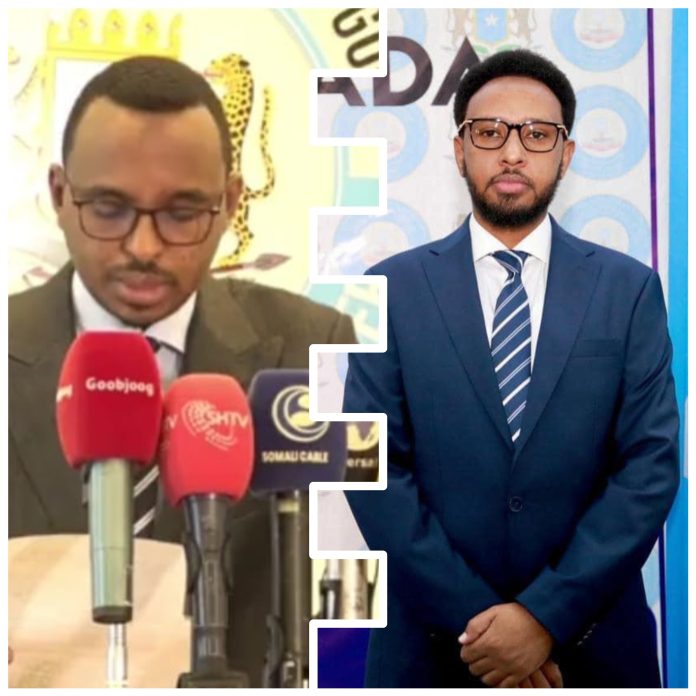MOGADISHU (KAAB TV) – A recent revelation of internal documents has exposed a power struggle within the Somali Ministry of Finance, pitting Minister Bihi Iman Egeh against Auditor General Ahmed Gutale.
The contentious issue revolves around the authority to authorize payments, with the Accountant General, Abdirahman Mohamed Anas, seeking clarification from the Solicitor General.
The conflict, said to have originated in November, is characterized as a battle for a larger share of “commission fees” allegedly extorted from vendors and government departments in exchange for payment approvals, according to government officials within the finance department.
Currently, any payment, including salary releases and running cost approvals, must pass through the Ministry of Finance and receive co-approval from both the Auditor General and the Accountant General, documented on a form known as F16, before being released through another form, F3.
An official at the Ministry of Finance revealed, “The Auditor General Gutale has been extorting about 5% of any payment order made by any government agency or vendors working with the government. Failure to accept the extortion risks disapproval of the payments.”
The ramifications of this internal strife are severe, with almost half of government agencies reportedly not receiving their full allocated budgets since 2022. Some agencies have allegedly overspent their budgets as they have been accepting to demands for “commission fees” within the Auditor General’s office.
Over 70% of Somalia’s budget relies on international support from the World Bank and IMF, with less than 30% generated through domestic revenue collection.
Documents reveal a power struggle between Somalia Minister of Finance @BihiEgeh and Auditor General @AIGutale over who has the authority to authorize payments while the Accountant General writes to the Solicitor General to explain the matter. pic.twitter.com/lv7HnTYdBr
— Kaab Somali TV (@KaabTV) January 13, 2024
Proposal to remove the Auditor General from payment approval
Internal documents illustrate the ongoing dispute between Minister Bihi Iman Egeh and Auditor General Ahmed Gutale.
In a memo dated November 18, Minister Egeh proposed removing the Auditor General from payment approval, suggesting that the Auditor General receive expenditure reports only after the fact.
Additionally, Egeh proposed a revised F16 form with the signatures of the Accountant General and the Director of the Budget Section of the Finance Ministry as co-signatories.
Auditor General Ahmed Gutale, however, responded in a memo on November 27, demanding the Ministry of Finance cease the “wrong procedures of the financial policy” and asserting that the ministry has no role in approving cash payments.
Capitalizing on the internal strife, the Accountant General submitted a memo on November 28 to the Solicitor General, seeking legal clarification to resolve the confusion.
Sources within the Accountant General’s office suggest an attempt to gain sole authority over payment approvals if the infighting persists.
The issue started in November over what local sources describe as scramble for commission fees extorted from vendors and government departs in return for payment approvals.
Over 70% of Somalia’s budget is covered by international community incl. @WorldBankAfrica @IFC_org… pic.twitter.com/djUI6zy3Iw
— Kaab Somali TV (@KaabTV) January 13, 2024
The internal conflict raises concerns about potential obstacles to government employee salary payments.
Furthermore, the Transparency International’s Corruption Perception Index places Somalia at the bottom both regionally and globally, indicating a worsening corruption situation. The country, facing three decades of violence and instability, grapples with economic and humanitarian challenges for over three decades, with practically no means available to curb rampant corruption.
In October 2022, president Hassan Sheikh Mohamud dissolved two key anti-corruption bodies – the Judicial Service Commission and the Anti-Corruption Commission – via decree.
Mohamud has been accused of corruption and abuse of power in the past. Meanwhile, economic and humanitarian conditions for Somalians are steadily deteriorating.


